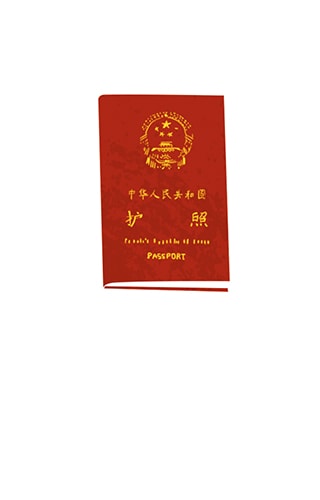The Chinese Millennial Traveler
Share

APEX Insight: By 2034, one in every five air travelers worldwide will be flying to, from or within China, the bulk of them millennials. Impressive both in number and spending power, this jet-set demographic will play a key role in shaping the future airline passenger experience.
Chinese millennials are moneyed, educated, technologically proficient, socially united – and a little bit spoiled. They also represent one of the biggest populations of the millennial group: 60 percent of millennials worldwide live in Asia, with a third originating from either China or India. And, according to a study commissioned by the Singapore Tourism Board, Chinese millennials are the biggest spenders among Asian millennials, and have no qualms about spending upward of $14,000 on travel per year. This makes China’s millennials the most powerful contributor to an overall Asian millennial market that some value at more than $210 billion.
 “Gaining the loyalty of millennial consumers is absolutely imperative for ‘legacy’ companies,” says Joan Kuhl, founder and president of training, research and consultancy agency Why Millennials Matter, and author of several books on what she calls “the First Globals.” According to Kuhl, “They just overtook baby boomers this year as the largest generation in the United States, and in China, there are 385 million millennials – that’s 28.4 percent of the population. Goldman Sachs has called Chinese millennials the single-most important demographic in the world today.”
“Gaining the loyalty of millennial consumers is absolutely imperative for ‘legacy’ companies,” says Joan Kuhl, founder and president of training, research and consultancy agency Why Millennials Matter, and author of several books on what she calls “the First Globals.” According to Kuhl, “They just overtook baby boomers this year as the largest generation in the United States, and in China, there are 385 million millennials – that’s 28.4 percent of the population. Goldman Sachs has called Chinese millennials the single-most important demographic in the world today.”
A report issued by Goldman Sachs last year on the Chinese tourist boom estimates that the majority of Chinese tourists will be millennials. “Over the next decade, 74 million millennials at Chinese universities are set to graduate,” the report states. “We think they will look to travel overseas in large numbers, given they are well informed and do not consider language barriers to be prohibitive.”
Experience Matters
Treating all millennials the same would be a mistake. Jason Dorsey, cofounder and millennial researcher at The Center for Generational Kinetics in Austin, Texas, says that while the actual age group or demographic of a generation is handy to know, it’s really attitudes and life experiences that we should be studying if we want to understand what makes them tick. “The first and last birth year for a particular generation will vary around the world,” Dorsey says. “What we are really looking for is consistency and predictability in behaviors, and when does that predictability start and stop.”
While China’s millennial generation (born between about 1980 and 2000) was growing up, the country experienced a huge economic boom, advances in consumer technology, the proliferation of the World Wide Web and, perhaps most critically, the enforcement of a strict one-child policy over the past 20 years in many areas. Naturally, the social climate they grew up in has contributed to the development of particular personas, and it would do airlines good to get to know them.
 China’s Digital Natives
China’s Digital Natives
Millennials are generally considered tech-savvy and tech-addicted, but Chinese millennials really take this and run with it. Not only do they spend more time online than Western millennials, but they appear to be better at using technology, and this means their expectation of a digital brand engagement experience is incredibly high. They won’t tolerate being bombarded with messages and they expect things to work, especially on mobile devices.
“Millennials in other places tend to be less tech-savvy, more tech dependent,” Dorsey says. “They don’t know how tech works; they just know they can’t get on without it. In China though, you tend to have a much higher threshold of technical skills. It’s a whole new level. There’s a complete integration into that digital world, which to them is as important and almost as real as the physical world.”
Their intense digital immersion, a lifetime spent in relative solitude as only-children, and the intense pace of urban life in many large Chinese cities mean they are often quite happy to stay home. Interacting with friends digitally on their preferred social networks, such as WeChat and Weibo, researching products and shopping online, streaming movies and gaming are all perfectly normal activities.
Ninety-seven percent of Chinese millennial travelers report sharing their travel experience online, via travel review sites, personal blogs and more.
China Southern Airlines was the first airline to open a WeChat account to reach millennials and has developed more than 20 functionalities – from booking flights to customer service – on the app. Air China, AirAsia, China Airlines and other domestic airlines also hold WeChat accounts; but notably, in appeal to the booming market, carriers abroad, such as KLM, Air France and British Airways, are getting the message, too.
“Since China’s millennials are often homebodies, airlines should focus on digital marketing and advertising that millennials can view while online,” Kuhl says. “Also, the on-demand services a company can provide will be utilized by this generation.” China’s homebody culture, known as the “zhai economy,” has spurred a rise in on-demand services, such as online food, grocery and product delivery, in major cities.
According to the “Chinese Millennial Traveller” report, the third in a WYSE Travel Confederation’s series, the number of bookings made with a smartphone in China far exceeds mobile bookings for young travelers from other regions. About 57 percent of Chinese millennial travelers use their smartphone four or five times a day, and 39 percent admit they can’t go more than five minutes without glancing at it.
 Luxury of Escape
Luxury of Escape
The penchant for finding respite from big-city life extends to the Chinese millennial’s travel urges, too. Travel among this group is widely viewed as a means to indulge, escape from city life and seek out exotic experiences.
Young Chinese travelers are less likely to plan their trip with a clear destination in mind, but visa requirements do play a role in decision-making. According to the report by Goldman Sachs, roughly 60 percent of Chinese travelers view visa applications as the greatest impediment to traveling abroad. A number of countries, including France, the UK and the United States, are relaxing visa requirements, but still only 45 countries don’t require visa applications. Hong Kong and Macau will remain popular destinations, but increasingly, travelers are seeking out off-the-beaten path treks elsewhere in Asia and abroad in Europe and the United States.
Comfort is key as well. The highest portion of Asian millennials traveling in business class comes from China, and this group shares a preference for four-star accommodations, according to the Singapore Tourism Board’s “Capturing the Asian Millennial Traveller” report. While combination trips booked with tour operators have been popular, this group is looking more and more to piece trips together on their own. These open gaps could be an excellent opportunity for airlines to boost ancillaries by making smart recommendations through their apps. “They increasingly are leaving open spaces,” Dorsey explains.
Kuhl suggests that, regardless of nationality, millennials have an “all out” attitude toward trips and will spend extra on certain air travel perks. She says that aside from upgraded food and beverage on board, they might spend more on RFID baggage tags, checked luggage at the gate and priority baggage claim. High-performance Wi-Fi and in-seat electrical outlets are also strong contenders for an upsell, especially for Chinese millennials, who spend 27 hours a week online – approximately 69 percent of that time on social media – and want to share every detail of a trip with their “digital entourage.”
“Here’s where Chinese millennials really differ from other generations … They like small luxuries.” €” Jason Dorsey, The Center for Generational Kinetics
Viewing this affinity for perks, Dorsey says airlines could make big loyalty gains with small details on board. “Here’s where Chinese millennials really differ from other generations,” he says. “They like small luxuries. What that means is that a nicer soap or a nicer cookie, or anything like that, that adds just a touch of luxury to the experience is meaningful to them … If the airlines thought like that, that would be one of the important things.”
As airlines outside of Asia increasingly endeavor to market to this emerging travel group, it will be important to make sure they don’t miss the mark in their efforts. “Appealing to millennials is a delicate balance,” Kuhl concludes. “This demographic can often tell when corporations are trying too hard to appeal to them, which can turn them off. Understanding their desires and behaviors is imperative for gaining their business, but do not make the efforts to appeal to them too extreme.”
“The Chinese Millennial Traveler” was originally published in the October/November issue of APEX Experience magazine.


